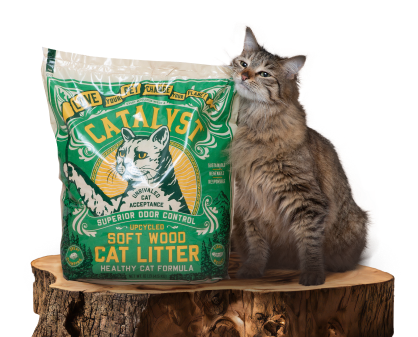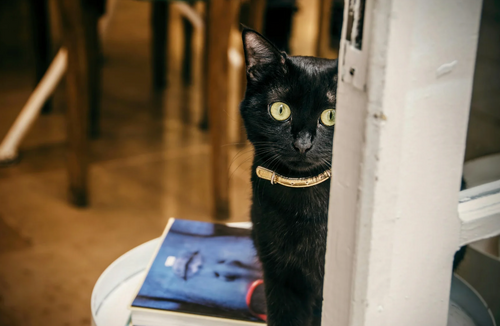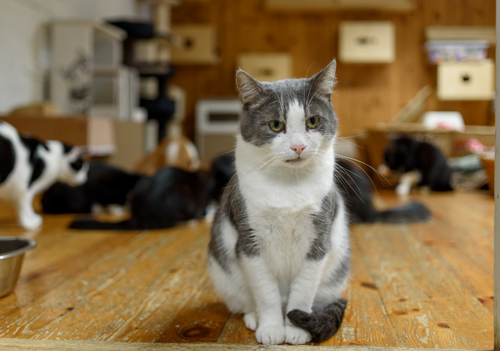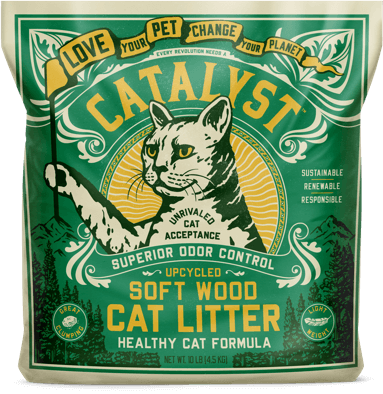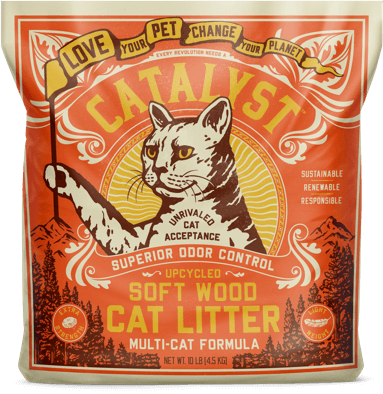Mary Linn Lombardo and Only Kindness Rescue Rewrite a Happier Ending for Cats, One Animal at a Time
Only Kindness Rescue sums up its mission, vision and values in its name. Dedicated to overlooked, underserved, and at-risk companion animals since 2006, the rescue and its fearless leader, Mary Linn Lombardo, are rewriting a happier ending, one animal at a time.
“Feral cats deserve love too, just like all animals,” says Lombardo. She set out to demystify the negative connotations of colony and feral cats in northern New Jersey, and she’s had great success doing so.
While the primary focus of her rescue is now on feral cats, an unadoptable Beagle named Bailey Jean was the original inspiration nearly 20 years ago. As a lifelong animal lover, Lombardo volunteered at a local shelter, which is where she rescued Bailey Jean. As she dedicated time at the shelter, she felt she could make a bigger impact with her own organization, so Only Kindness was born in 2006.

“She was the inspiration to start my own rescue,” Lombardo credits the pup, “and my partner in the rescue for 14 years.”
Lombardo was able to focus more on underserved, overlooked and at-risk companion animals, mainly dogs. Bailey Jean was critical to the fostering process, helping the incoming animals right alongside Lombardo.
Rescue kittens and cats eventually came into the fold with the rescue. These animals presented unique challenges. Lombardo tapped her prior knowledge of Trap-Neuter-Release (TNR) efforts, an effective way to manage the cat population. In 2010, she undertook the rescue’s first large-scale TNR effort, which included 63 cats.
“Cats can start procreating as early as four months old, so you really have to get to the root of the problem, and that’s where TNR comes in,” Lombardo says.
She also knew some of her efforts had to include changing the harmful misconceptions of feral cats and their caretakers. In 2015, she successfully fought a feeding ban in her town and collaborated with the health director to develop an ordinance to allow TNR and responsible colony management. The town council passed the ordinance and, the following year, Lombardo was tasked with helping manage multiple feral cat colonies of more than 100 cats. She knew she needed help with this monumental undertaking, so in 2017, she recruited the help of high-energy, passionate world changers, a.k.a university students.
“It’s important to reach these students early,” Lombardo says. “They can help make the world a kinder place for animals and the environment.”
Lombardo was spot on with this assessment, and William Paterson University students responded to the call. The resulting partnership was dubbed Pioneer Paws, a nod to the university’s mascot and an apt descriptor for Lombardo and the dedicated group of young adults blazing a new path for effective and kind treatment of all animals.
The partnership is thriving today. Nearly 30 WPU students currently help Lombardo manage local community cats. They assist with responsible colony management – a critical component of which is TNR – and educate the local community about these efforts. The students dedicate more than 500 hours of community service each semester and do other work, including service trips, presentations, fundraisers and more.
“It is important to me that this program helps students discover how to enrich their own lives and make a difference in the lives of others,” says Lombardo.
Said one Pioneer Paws Student participant, “There are many ways that people can help less fortunate animals … what we’re doing with community feral cats does really make a difference in their lives.”
Since Pioneer Paws started its work, cats in seven feral community colonies in New Jersey have been spayed, neutered and vaccinated. More than 50 cats have been adopted by loving families. Perhaps most impressively, no new kittens were born within these colonies since 2019. Due to this kind management, and in addition to aging and attrition, only 28 cats remain in these colonies. Bottom line, “It’s working!” says Lombardo. But there is more to be done.
“This is an international epidemic, unfortunately,” Lombardo emphasizes. “It’s incredibly expensive to simply feed and care for the cats, and it must be done in strict accordance with the rules.”
Lombardo says some well-meaning people will dump food scraps near the cat colonies and don’t monitor the aftermath, resulting in mold, mice and increased wildlife.
“You can’t get people to accept, support, and respect the cats if you’re not a responsible and respectful caretaker,” she says.
Lombardo's operation is relatively small compared to many well-known, national organizations that often garner the lion’s share of the available funding. Catalyst Pet routinely finds these diamond-in-the-rough rescues and lends support, and Only Kindness Rescue is a grateful recipient of Catalyst Pet litter.
“It works incredibly well. It’s especially perfect for our special needs cats,” Lombardo says. “We’re so grateful for the help, and it allows us to continue providing sanctuary and adoptable cats with the best of everything we can offer.”
As for the future of the students in Pioneer Paws, Lombardo has no doubt they’ll change the world as they learn about protecting the welfare of companion, homeless, farm and wildlife animals.
“They’re seeing firsthand how they can build partnerships, help their neighborhoods and make a positive environmental impact.” she says. She also emphasized that the effects of animal cruelty are much more far reaching than just their own area, and students learn about this as well, with many focusing on these topics for final projects.
For her part, Lombardo will continue working in her neighborhood and with the Pioneer Paws program, pouring her heart and soul into changing the narrative for felines, students, and the community. As one student put it, “We’re fighting for these animals who can’t fight for themselves.”








